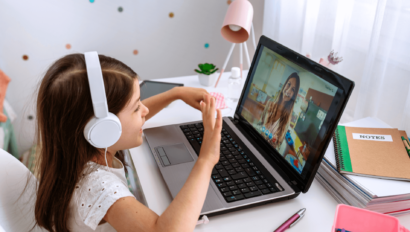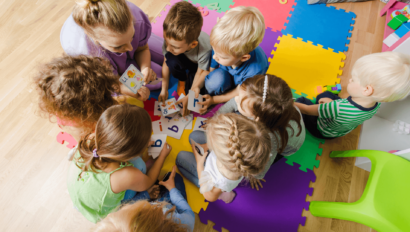Understanding Different Educational Philosophies: Reggio, Montessori, Play-Based, and Faith-Based

Choosing the right educational philosophy for your child can be a daunting task, especially with so many options available. Each philosophy offers unique approaches to learning and development, catering to different needs, interests, and values. To help you navigate through the choices, we’ll explore four of the most popular early childhood education philosophies: Reggio Emilia, Montessori, Play-Based, and Faith-Based. Understanding these models will allow you to make an informed decision that aligns with your child’s personality and your family’s values.
Reggio Emilia: Learning Through Exploration
The Reggio Emilia approach originated in Italy after World War II, grounded in the belief that children are curious, capable, and driven to learn through exploration. It encourages self-directed learning, where children take the lead in their educational journey. Teachers act as guides, observing children’s interests and helping to expand on those ideas.
In a Reggio classroom, you’ll find open-ended materials like blocks, clay, and natural objects that stimulate creativity and critical thinking. Children often work on long-term projects, collaborating with peers, which fosters problem-solving and social skills. The environment plays a significant role in learning, with classrooms designed to feel like welcoming and creative spaces.
Is Reggio right for your child?
If your child thrives in a collaborative, self-directed environment where their natural curiosity is nurtured, this philosophy could be a great fit.
Montessori: Independent Learning at its Best
Founded by Dr. Maria Montessori, this philosophy focuses on fostering independence and self-discipline in children. Montessori classrooms are designed to be child-centric, with materials and activities that allow children to learn at their own pace. Teachers, referred to as “guides,” provide individual or small-group lessons but allow children the freedom to choose their work.
Montessori materials are specifically designed to support hands-on learning and cognitive development, such as puzzles that develop fine motor skills or counting beads that introduce math concepts. You’ll find mixed-age classrooms in Montessori schools, where younger children learn by observing older peers.
Is Montessori right for your child?
If you’re looking for an environment that encourages independence, respect for others, and self-paced learning, Montessori preschools could be an excellent choice.
Play-Based: Learning Through Play
Play-based learning is exactly what it sounds like: using play as the main medium for learning. In this approach, play is viewed as an essential part of development, helping children to learn important life skills such as problem-solving, communication, and teamwork. Play-based programs often incorporate structured activities like storytelling or music time but leave plenty of room for free play.
In a play-based classroom, you’ll see children engaging with toys, games, and creative activities that stimulate both their imagination and cognitive development. Teachers play a supportive role, facilitating play and ensuring that children are exposed to different types of play experiences—whether it’s building with blocks or engaging in role-playing scenarios.
Is Play-Based right for your child?
If you believe your child learns best through hands-on exploration and imaginative play, this type of program might be the perfect fit.
Faith-Based: Learning Grounded in Values
Faith-based education integrates religious beliefs and values into the curriculum, creating an environment where children can grow academically, emotionally, and spiritually. pecific religious traditional programs typically include faith-based lessons alongside traditional academic subjects. These programs can be held at Christian daycares, Judaism daycares, or Islamic daycares, to name a few.,
Faith-based preschools focus on instilling moral values like kindness, respect, and compassion, and often incorporate religious practices, such as prayer or scripture reading, into the daily routine. Many parents choose this option because it allows their child’s spiritual development to flourish alongside academic growth.
Is Faith-Based right for your child?
If you want your child’s education to include a strong foundation in faith and moral values, a faith-based program could be the right choice.
Which Approach is Best for Your Child?
The right educational philosophy depends on your child’s learning style and your family’s priorities. Some children thrive in highly structured environments like Montessori, while others may blossom in the creative, project-based learning of Reggio Emilia. Similarly, if play and social interaction are your child’s primary learning tools, a play-based curriculum could provide the freedom they need to grow. For families who prioritize spiritual growth, faith-based preschools offer a balance of academics and religious teachings.
Take the time to observe how your child interacts with their surroundings. Are they naturally independent and curious? Do they enjoy playing with others, or do they prefer to focus on individual activities? Consider what values are most important to you and how you envision your child’s early learning experience.
Key Considerations When Choosing an Educational Philosophy
- Learning Style: Does your child thrive in structured or flexible environments? Do they prefer to learn alone or with peers?
- Values: Are you looking for an academic program that emphasizes independence, creativity, or faith?
- Classroom Setting: Would your child feel more comfortable in a mixed-age classroom or one focused on specific age groups?
- Social Interaction: Does your child enjoy collaboration, or do they prefer individual learning?
If you’d like to learn more about our Play-Based curriculum, visit Springview Academy or schedule a tour with us today!


